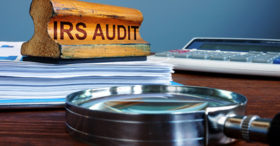The IRS just released its audit statistics for the 2020 fiscal year and fewer taxpayers had their returns examined as compared with prior years. But even though a small percentage of returns are being chosen for audit these days, that will be little consolation if yours is one of them.
Latest statistics
Overall, just 0.5% of individual tax returns were audited in 2020. However, as in the past, those with higher incomes were audited at higher rates. For example, in 2020, 2.2% of taxpayers with adjusted gross incomes (AGIs) of between $1 million and $5 million were audited. Among the richest taxpayers, those with AGIs of $10 million and more, 7% of returns were audited in 2020.
These are among the lowest percentages of audits conducted in recent years. However, the Biden administration has announced it would like to raise revenue by increasing tax compliance and enforcement. In other words, audits may be on the rise in coming years.
Prepare in advance
Even though fewer audits were performed in 2020, the IRS will still examine thousands of returns this year. With proper planning, you may fare well even if you’re one of the unlucky ones.
The easiest way to survive an IRS examination is to prepare in advance. On a regular basis, you should systematically maintain documentation — invoices, bills, canceled checks, receipts, or other proof — for all items reported on your tax returns.
It’s possible you didn’t do anything wrong. Just because a return is selected for audit doesn’t mean that an error was made. Some returns are randomly selected based on statistical formulas. For example, IRS computers compare income and deductions on returns with what other taxpayers report. If an individual deducts a charitable contribution that’s significantly higher than what others with similar incomes report, the IRS may want to know why.
Returns can also be selected if they involve issues or transactions with other taxpayers who were previously selected for audit, such as business partners or investors.
The government generally has three years within which to conduct an audit, and often the exam won’t begin until a year or more after you file your return.
Complex vs. simple returns
The scope of an audit depends on the tax return’s complexity. A return reflecting business or real estate income and expenses will obviously take longer to examine than a return with only salary income.
An audit may be conducted by mail or through an in-person interview and review of records. The interview may be conducted at an IRS office or may be a “field audit” at the taxpayer’s home, business, or accountant’s office.
Important: Even if your chosen for audit, an IRS examination may be nothing to lose sleep over. In many cases, the IRS asks for proof of certain items and routinely “closes” the audit after the documentation is presented.
Don’t go it alone
It’s advisable to have a tax professional represent you at an audit. A tax pro knows the issues that the IRS is likely to scrutinize and can prepare accordingly. In addition, a professional knows that in many instances IRS auditors will take a position (for example, to disallow certain deductions) even though courts and other guidance have expressed contrary opinions on the issues. Because pros can point to the proper authority, the IRS may be forced to concede on certain issues.
If you receive an IRS audit letter or simply want to improve your recordkeeping, we’re here to help. Contact us to discuss this or any other aspect of your taxes.
© 2021 Covenant CPA






